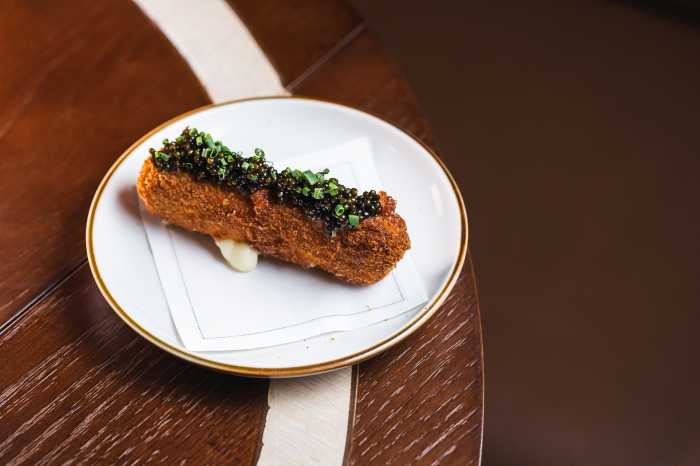By Mark Kramer
In September 2010 I had the honor of curating a reading called “Westbeth Writers Today” to celebrate Westbeth’s 40th anniversary. Mark Kramer submitted this piece and read it in the community room. I loved it and it was well received. This a wonderful piece of historic creative nonfiction that showcases Mark’s humor and eye for details.
Kate Walter
It was a cold spring night in late spring 1987 that I moved into the Jane West Hotel. All things weird were normal in this whore of hotels. Here at the dark end of Jane St., the metrophobian squalor of yesteryear’s Far West Village was funneled to the river’s edge. This was WestWash, West of Washington, geographically distinct, just outside reach of the historic district’s property regs, and as yet outside the public gaze.
East of Wash was where the concerned citizens’ brigade began. Between the Jane West and the picturesque Village of well-tended townhouses was a dystopian expanse of razor wire-festooned parking lots then lining Washington St. between Bethune and Horatio.
At 113 Jane St. stands the five-story, octagon-turreted, red-brick relic known variously through the years as The American Seaman’s Friend Society Sailor’s Home and Institute, The Jane West, The Riverview and ultimately The Jane.
It was home to wayfaring strangers, hipsters and backpackers lured by listings in the edgier tourist guides of the day — as well as the insulted, the injured, the tired, the poor, the huddled messes, the unlucky, the preterit and your humble correspondent.
Its gritty realism was surpassed by an even grittier surrealism.
One longtime resident, a sozzled old duke, got his SAG card playing a vagrant in a series of AmEx commercials.
Another, Jimmy the bad cop, was a retired detective first-grade who made frequent trips to the evidence locker at a certain Midtown precinct.
I have it on good authority that the Jane West was where, whenever the president came to town, the Secret Service sequestered individuals who were considered a risk to the president’s safety. This included a radical activist who threatened L.B.J. for picking up his beagles by the ears.
Who knows when this sequestration practice began, or if it continues? Who cares?
Throughout the last decades of the 20th century, the Jane West ran an ad each week in the Village Voice under the heading “Short-Stay Hotels.” There was always room at this inn.
To have called Jane West lobby’s ambience seedy would be an affront to seeds. Back then it was an unapologetically abandon-all-hope flophouse, with guest intake through a bulletproof plexi window. From here the stairwell offered an ascending olfactory tower of Babel, at each landing suffused with an unfolding narrative of incense, cigarettes, freebase, bodily essence, bleach, ammonia, urine.
Or one could ascend via the all-purpose freight-and-passenger elevator, operated by any one of the Jane West’s wraith-like factotums, most of whom lived on the premises in some form of indentured tenancy. One of them, to this day a familiar figure to be seen shambling throughout the neighborhood, was a taciturn ex-pug who did 16 years hard time for armed robbery. If anyone was the avatar of this establishment, it was not Herman Melville, but this grizzled yesteryearian, living his life of solitude and silence in a makeshift shelter built in the swimming pool in the hotel’s basement.
On the second floor was the single pay phone. These were of course the pre-cellphone years. This was the scene of wrenching comi-tragic soliloquies drawing upon such familiar themes as money, breakups, lockouts, arrests and lost or stolen goods of every description.
It was a singularly unappetizing pay phone with sebum-smudged buttons, on its mouthpiece a scent of the last user’s breath. Tobacco. Lipstick. Halitosis. Mint. I am proud to be ashamed to report that for many months I ran my freelance journalism franchise from this very phone, amid the threats and grumbles of my equally phone-challenged neighbors.
From my first night — and this is taken verbatim from my original notes on a memo pad from the porno weekly where I then toiled: “The woman in the next room is screaming, to no one in particular, ‘That dog’s gonna get you!’”
My jottings go on to detail an encounter, several minutes earlier, with a turd on the floor of a shower in the communal hallway bathroom. I recalled that a turd on an automobile seat was one of the precipitating events in the narrative of Doctorow’s “Ragtime.” And in “Tropic of Cancer,” there was a poignant turd floating in a bidet.
Concluded my notes, “The grotesque is crueler than the tragic.”
All this and less enabled me, your protagonist, to regard this experience as “literary.”
Somewhere William S. Burroughs wrote, “A man’s gotta learn to come down in the world.”
I personally was down, but not out.
Yet obviously, something, possibly of a family nature, had gone amiss — elsewise I wouldn’t be here at the corner of heartbreak and Jane, in this grimy bed-sit.
Gazing out upon the mighty Hudson, I reflected upon how I had spent four years, a quarter century earlier, on the banks of this selfsame river, 100 miles north in the sylvan municipality of Annandale-on-Hudson, i.e., Bard College, transfixed by writings created by men inhabiting rooms much like this one. Thanks, guys!
Through my window, the piers and the asphalt of the as-yet-unredeveloped waterside were drenched with an empurpled — and possibly toxic — glow as the sun sunk over America. When the traffic noise subsided, it was possible to hear the whistle of trains at the Hoboken Terminal just across the river
This was not quite the Bowery-style chicken-wire cubiculum — but close — a level of amenity approaching that of your better county jails. Its bed was gurney-width, its pillow the thickness of a colostomy bag, the blanket fraying and possibly gnawed by mice. An overhead fluorescent flickered with hard-yellow luminance. A faint redolence of gray-market insect repellent permeated the air. A notice on the door screamed, in a flurry of caps and exclamation points: “No Pets! No Cooking! Not Permitted Please!”
Flash-forward with me to spring 1993, and I am BACK at 113 Jane, now the Riverview, in sun-splashed Room 506. No longer working at Screw, I am now a freelancer with a growing body of work and a life clearly not serene. I am back here just in time to pen the following item, laced with much literary license, for New York Press’s “Best of ’93” issue:
“When I last checked out of this place in 1987,” a friend of ours — and quite possibly your humble correspondent — reports, it was still called the Jane West, “and the elevator man said to me, ‘You’ll be back. Herman Melville came back.’ Turns out Melville died 16 years before the hotel was built. But I came back anyhow.
“Since 1907, this octagon-turreted, 330-room fortress of hospitality is where the Titanic’s survivors spent their first nights ashore, and where generations of seamen, dock workers and sundry denizens of the once-vibrant riverside slept off the vicissitudes of maritime life.
“Today, the weatherworn brickwork is offset with blinking tendrils of neon — and the Day-Glo signage of a short-lived skin bar that consumed a lower floor. The windows of our friend’s 15-foot-by-15-foot room give out upon a huge and heroic vista enveloping the piers, the Jersey shoreline, the Statue of Liberty, the Twin Towers and a constellation of river-going craft of every size and description. Where else on this island of Manhattan could so much atmosphere be had for $700 a month? We stayed around to savor a sunset over the American mainland, and to marvel at how our friend’s lifelong flirtation with Edge City would find him under the same roof with Herman Melville’s ghost.”
Providentially, around that time, the hotel was being managed by a humanistically inclined gent seeking to enliven the tenant mix with artists and professionals. Now, typically, almost invariably, as a means of circumventing rent-stabilization entitlements that would give residents generous New York City tenancy rights after four weeks stay, guests were required to check out every 21 days.
Perhaps because of the NY Press piece, I was allowed to outstay the 21-day policy, becoming a rent-stabilized tenant.
Alas, the indulgent hotelier to whom I owed my rent stabilization was sacked some weeks later — immolated on the altar of a shakeup following the marriage of the Haitian housekeeper and the hotel’s octogenarian owner. And upon his death soon thereafter, the trust known as Hotel Associates, Inc. passed into her hands. She sold it for a figure in the mid-millions and moved back to Haiti.
I, too, continued in my quest to make a buck off the Jane West, as witnessed by the following pitch to a certain publication in April ’99.
“Dear [editor’s name redacted]: The story idea in which I now hope to interest you is a feature-length, cultural and anecdotal profile of the Riverview Hotel on the Greenwich Village waterfront — pegged primarily to the hit musical ‘Hedwig and The Angry Inch’ playing within the hotel itself at the Jane Street Theatre… .
“As a former resident who bore intimate witness to the Riverview’s raw residential spectacle, my writerly objective would be to reflect — through Hedwig — upon the universality of S.R.O. living in a manner reminiscent of Orwell’s ‘Down and Out in Paris and London.’
“The hard-rock intergenderist epic and its Brechtian protagonist plays its Wild West Village site-specificity and self-referentiality for all they’re worth, and the Riverview’s end-of-the-line weltschmerz is an essential plot point. Hedwig is family entertainment for the non-Oedipal family, and joyous celebration of the suet-stippled, cobblestone, truck-and-warehouse theme park for cracked-out polymorphs and those who liked them.”
Well, I never sold my Jane West story, and it would travel an improbable path to its assignation with you tonight. Moreover, not a day passes that I don’t gaze down on the Jane West from my tenth-floor Westbeth window, knowing that it resides at the heart of a greater narrative yet to be told, a narrative almost worthy of Herman Melville.
This piece was condensed from the original for space reasons.





































